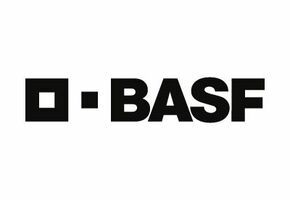Job in Germany for English Speaking Foreigners: How to find

Nowadays, finding a legal permanent job in Germany without knowing German is more than possible. But many people do not know if their English skills will be enough and this article will answer many questions of those who are fluently speaking in English and planning to get a job for English speakers in Germany.
English is the most widely spoken foreign language in Germany as in many other European countries. But is it easy or even possible to find a job as a foreigner who speaks only English? Despite the challenges of finding a job in Germany for foreigners, it is still possible to find an English-speaking position. On sites such as LinkedIn, job listings in English are often accompanied by requirements that include good English skills, which gives hope to many.
Job vacancies in Germany for English speakers
The demand for language skills among employees depends on the company and the brunch. Logically, a doctor cannot get a job in Germany without knowing German, officials do not issue work permits. English-speaking workers in sales and marketing are of little interest to employers. The closer the employee's workplace is to the client, the more important language skills are. German companies focus on German-speaking customers - it's more than logical!
The closer the employee's workplace is to the client, the more important language skills are. German companies focus on German-speaking customers - it's more than logical!
So, how to get a job in Germany? Foreigners may focus on firms whose products are oriented to the external market. An example is the IT sector, which is an amazing option. In German IT companies, English is required more often than in German. SAP, the world leader in enterprise management system programming, offers hundreds of English-speaking jobs every year.

Big companies in Germany speak English
In large German companies with foreign subsidiaries, it is not possible to speak only German. Meetings, presentations, internal mailing – English speaking in Germany has taken a niche as the main means of communication between colleagues. Examples are Adidas, BASF, and Volkswagen. The use of English as the official internal language of the company in Germany allows a high level of knowledge of foreign languages by Germans.
Without knowledge of foreign languages, it becomes even more difficult for the Germans themselves! Migrants play an important role in this. There are more and more of them in the country and communication with colleagues and clients in English is no longer a sign of IT companies. So, finding work in Germany for foreigners is possible!
The lack of a local labor force and globalization force employers to look for specialists among migrants or to establish branches in other countries.
Small firms have difficulty hiring foreign workers. Family businesses grow slowly, people work in one place for years. The clients are German-speaking and there is no need for colleagues to speak English. Taking a foreigner without a language into an enterprise with such an internal culture is tantamount to hiring a dumb employee. Switching to English in conversations or meetings for Germans is unnecessary stress. Jobs in large firms give future migrants a better chance of getting a job without knowing German.
Entry-level jobs in Germany – what you can expect?
After the tiring and long process of moving to Germany, the next step is finding a job there. Getting an entry-level job in Germany for foreigners can be a frightening process. Even though you've gained a lot of experience in the field, nothing prepares you for the disorientation that comes with working in the workforce.
First things first what you can do is look for entry-level jobs by googling, and you may find dozens of options. You can expect job opportunities starting from an HR specialist and ending with a software developer. In Berlin or Frankfurt, jobs for English speakers are widely required at the moment. You may also find great jobs in Munich that don’t require German proficiency.
But note that your work experience will reduce the requirements for German. A foreigner with extensive work experience is more likely to get an English-speaking vacancy than a university graduate.

Work culture in Germany

Germans are known for being cultured, modern, and liberal. They also have a professional and formal working environment. They are believed to be more productive than their counterparts in other countries. There is a growing recognition of the importance of maintaining a work/life balance, with many employees taking advantage of flexible working arrangements and remote working. Etiquette is still a vital part of the office culture.
In Germany, the national minimum salary is 9.50 euros for an hour. However, contracts or work agreements that offer a lower amount may be invalid. Many sectors and industries set their minimum wages, which are based on collective agreements.
The typical working week in Germany is 36 to 40 hours. It usually includes 7 to 8 hours of sleep and a 30-minute break at lunchtime. Germany is one of the largest industrial bases in the world and is home to many small and medium-sized businesses. Some of the most dynamic industries in the country include service, agriculture, chemical, and electrical engineering.
Main differences you can face while working in Germany
Germany is a very popular destination for expats both for living and working. However, before you decide to move to the country, it's important to have an honest assessment of its various aspects.
Being able to live in another country is an exciting opportunity to meet new people, and get acquainted with a new culture, new country, and new traditions. However, it can also be hard to adjust to the culture and customs of the new environment. This is why it's important to learn a new language and customs. Of course, if your stay in Germany is temporary then local language proficiency may not be a must, but to be fully integrated into the country’s culture and specifically, in the workplace, you may need to make your steps towards it.

Before you start working in Germany, you must have in mind you may face some differences in German work culture, such as working hours, lunchtime, work-life balance, punctuality, type of communication, relationships between coworkers, and of course holidays.
Popular Articles

Commercial Electrical Maintenance: Ensuring Safety and Efficiency

Employee Relocation Rights in Germany and the Netherlands: A Compre...

Boosting Earnings: Semi-Skilled Immigrants' Guide to Success in Bon...

Service Side Hustles: Part-Time Job Options in Berlin

Preparing for the Big Move: Essential Steps for International Reloc...

How To Protect Floors When Moving: Tips and Tricks




